Filter by
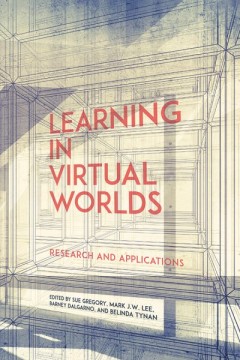
Learning in Virtual Worlds Research and Applications
In this authoritative collection, a team of international experts outline the emerging trends and developments in the use of 3D virtual worlds for teaching and learning. They explore aspects of learner interaction with virtual worlds, such as user wayfinding in Second Life, communication modes and perceived presence, and accessibility issues for elderly or disabled learners. They also examine a…
- Edition
- -
- ISBN/ISSN
- 9781771991339.01
- Collation
- -
- Series Title
- Issues in Distance Education
- Call Number
- 347 pages

Skill-mix Innovation, Effectiveness and Implementation: Improving Primary and…
Penulis fokus pada enam segmen inti dari sistem kesehatan: promosi dan pencegahan kesehatan, perawatan akut, perawatan kronis, perawatan jangka panjang dan paliatif, serta akses untuk kelompok rentan dan orang-orang yang tinggal di daerah yang kurang terlayani. Selain itu, buku ini menganalisis peran sistem pendidikan, perencanaan dan kebijakan tenaga kerja, dan pembiayaan dalam organisasi pera…
- Edition
- -
- ISBN/ISSN
- 9781108890960
- Collation
- -
- Series Title
- -
- Call Number
- T 362.1071 MAI s
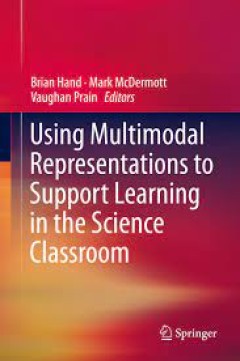
Using Multimodal Representations to Support Learning in the Science Classroom
This book provides an international perspective of current work aimed at both clarifying the theoretical foundations for the use of multimodal representations as a part of effective science education pedagogy and the pragmatic application of research findings to actual classroom settings. Intended for a wide ranging audience from science education faculty members and researchers to classroom te…
- Edition
- -
- ISBN/ISSN
- 978-3-319-16450-2
- Collation
- VI, 250
- Series Title
- -
- Call Number
- -

Uses of Technology in Lower Secondary Mathematics Education A Concise Topica…
This topical survey provides an overview of the current state of the art in technology use in mathematics education, including both practice-oriented experiences and research-based evidence, as seen from an international perspective. Three core themes are discussed: Evidence of effectiveness; Digital assessment; and Communication and collaboration. The survey’s final section offers suggest…
- Edition
- -
- ISBN/ISSN
- 978-3-319-33666-4
- Collation
- VII, 34
- Series Title
- -
- Call Number
- -
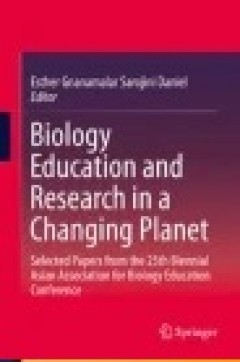
Biology Education and Research in a Changing Planet
This book presents selected conference proceedings from the 25th Biennial Asian Association for Biology Education Conference. It clarifies the differences between the structure of biology education for educators and researchers. It solves open problems by creating a bridge between biological research and its application in education and the sustainable development of communities. The book’s f…
- Edition
- -
- ISBN/ISSN
- 978-981-287-524-2
- Collation
- -
- Series Title
- -
- Call Number
- 370.7
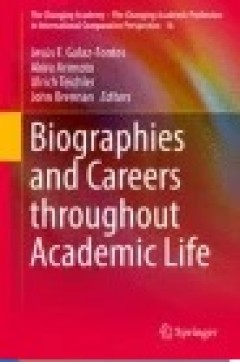
Biographies and Careers throughout Academic Life
The book draws on the 2007 Changing Academic Profession international survey in order to document the personal characteristics, career trajectories, sense of identity/commitment and job satisfaction of academics in 14 countries with different levels of economic and social development and different higher education systems. With nearly 26,000 academics surveyed in 19 countries (of which 14 are r…
- Edition
- -
- ISBN/ISSN
- 978-3-319-27493-5
- Collation
- -
- Series Title
- -
- Call Number
- 378

Diversifying the teaching force in transnational contexts : critical perspect…
Diversifying the teaching force has become a priority in many migrant-receiving jurisdictions worldwide with the growing mismatch between the ethnic backgrounds, cultures, languages, and religions of teachers and those of students and families. Arguments for diversification tend to be couched in terms of disproportionate representation and students from minority backgrounds needing positive rol…
- Edition
- -
- ISBN/ISSN
- 9789463006637
- Collation
- -
- Series Title
- -
- Call Number
- 371.1
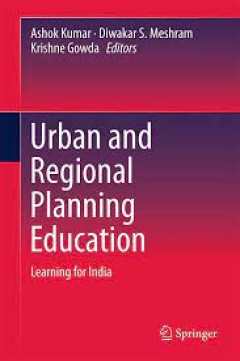
Urban and Regional Planning Education Learning for India
This is the first volume exclusively dedicated to planning education, with a focus on India and learning from global experiences for India. Prior to the 1990s, planning education in India was largely confined to national and local economic concerns. Within a globalized scenario, such pedagogies and theories have become outmoded. With new concerns emerging in planning, new pedagogical tools and …
- Edition
- -
- ISBN/ISSN
- 978-981-10-0608-1
- Collation
- 38 b/w illustrations, 10 illustrations in colour
- Series Title
- -
- Call Number
- -

African Indigenous Knowledge and the Sciences: Journeys into the Past and Pre…
This book is an intellectual journey into epistemology, pedagogy, physics, architecture, medicine and metallurgy. The focus is on various dimensions of African Indigenous Knowledge (AIK) with an emphasis on the sciences, an area that has been neglected in AIK discourse. The authors provide diverse views and perspectives on African indigenous scientific and technological knowledge that can benef…
- Edition
- Ed. 1
- ISBN/ISSN
- 978-94-6300-515-9
- Collation
- XII, 220
- Series Title
- Anti-colonial Educational Perspectives for Transformative Change
- Call Number
- 370 AFR a

Unmasking School Leadership A Longitudinal Life History of School Leaders
This book is a longitudinal life history of the lives and work of primary school principals in Ireland. It provides a unique opportunity to peer inside the realities of leading schools in changing times. In a system that until recently did not prepare principals for the onerous roles and responsibilities, a small system with limited mobility, inter-personal relationships emerge as critical, fre…
- Edition
- -
- ISBN/ISSN
- 978-94-017-9433-6
- Collation
- 3 b/w illustrations, 1 illustrations in colour
- Series Title
- -
- Call Number
- -
 Computer Science, Information & General Works
Computer Science, Information & General Works  Philosophy & Psychology
Philosophy & Psychology  Religion
Religion  Social Sciences
Social Sciences  Language
Language  Pure Science
Pure Science  Applied Sciences
Applied Sciences  Art & Recreation
Art & Recreation  Literature
Literature  History & Geography
History & Geography